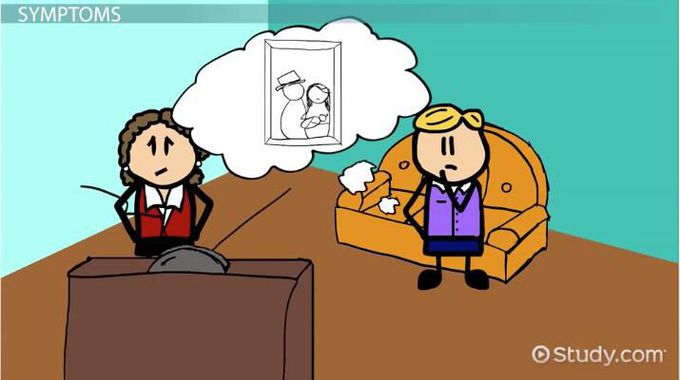


Retrograde amnesia
Retrograde amnesia is memory loss of events that occurred in the recent past before the onset of amnesia. Research shows that people who experience retrograde amnesia are more likely to lose memories closer to the occurrence of the amnesia. For example, if John was diagnosed with retrograde amnesia in the year 2013, he is more likely to lose memories from 2012 and 2011 than he is to lose memories from 1980. It is possible that he loses those memories, too, but more likely that he loses memories closer to 2013. Luckily, those with retrograde amnesia can still form new memories. Symptoms of retrograde amnesia are false memories, confusion, or brain and coordination problems. These symptoms are similar to those associated with other types of amnesia. The only specific symptom of retrograde amnesia is forgetting past events as opposed to new ones. For example, John might not recognize his wife of five years, and he may recall having four children, even if he has none. This can be difficult for loved ones. For example, in the movie, The Notebook, the woman doesn't remember who her husband is. He tells and retells the story of her past, but she seems to forget again and again. Causes of retrograde amnesia include brain injuries, surgeries, traumatic events, nutrition issues, infections, or electroconvulsive therapy, commonly known as shock therapy. At times, it can be difficult to track the exact cause of one person's retrograde amnesia. For example, in soap operas, a serious head injury is the usual suspect for amnesia, which can be a cause in reality as well, but it is not the only possibility. Diagnosis Doctors will ask many questions in order to determine what the issue is. They'll ask about family history, drug use, including prescription and non-prescription, alcohol use, recent head injuries or surgeries, what the patient can remember or not remember, and any other symptoms. It's likely that the patient will undergo tests. They can be scans, reflex tests, or simple questions. Questions may include recent news or topics such as the patient's address or name.
Dandy Walker Malformation | Diagnosis symptoms and treatment2-Minute Neuroscience: Brain AneurysmsSeizures (Epilepsy) Nursing NCLEX: Tonic-Clonic, Generalized, Focal, SymptomsStroke: Causes, Risk Factors, Treatment, and Prevention | Mass General BrighamPreparation for USMLEEffects of sugar on teethNeurofibromatosisAbsence seizuresSymptoms of absence seizures

